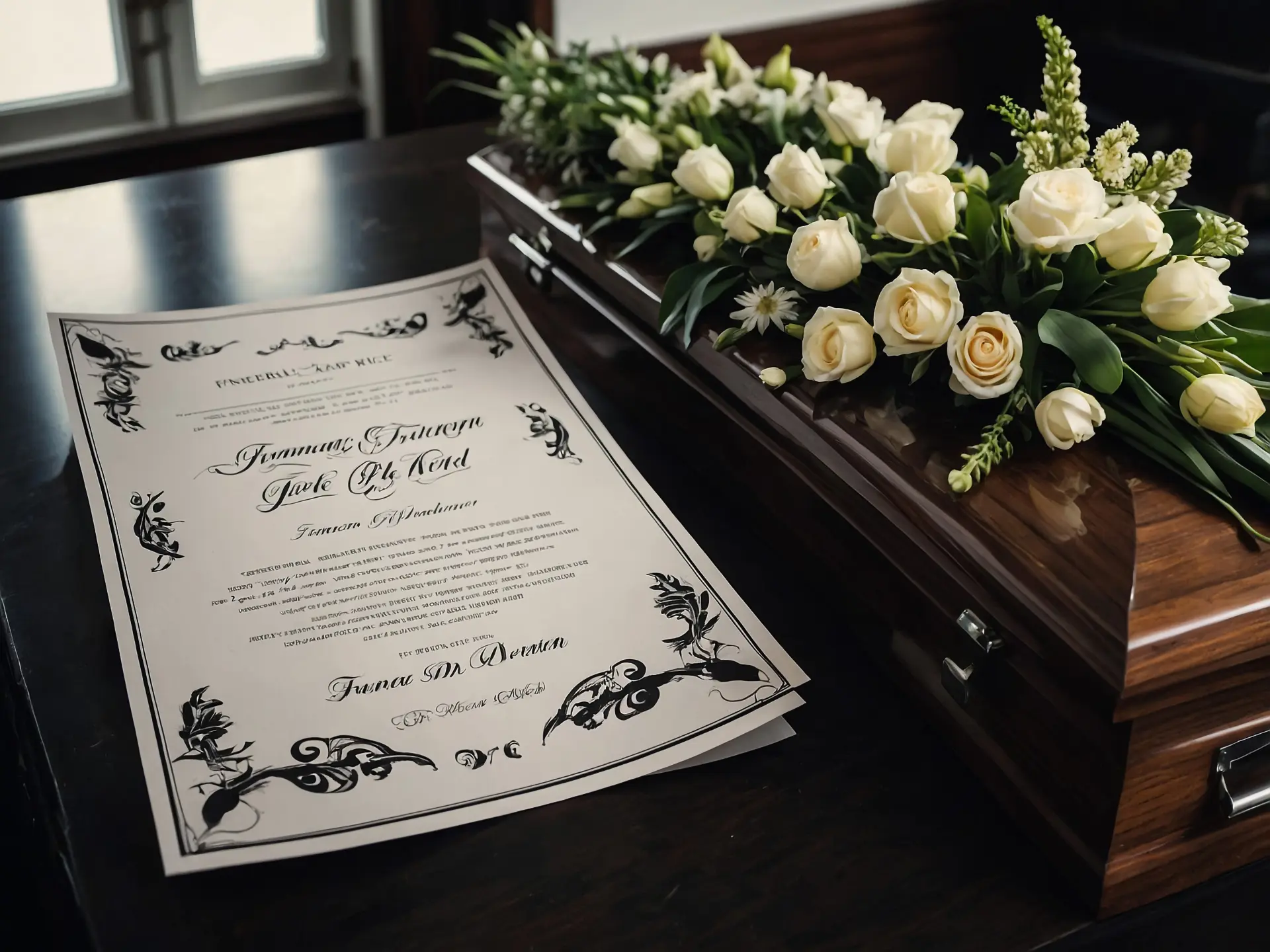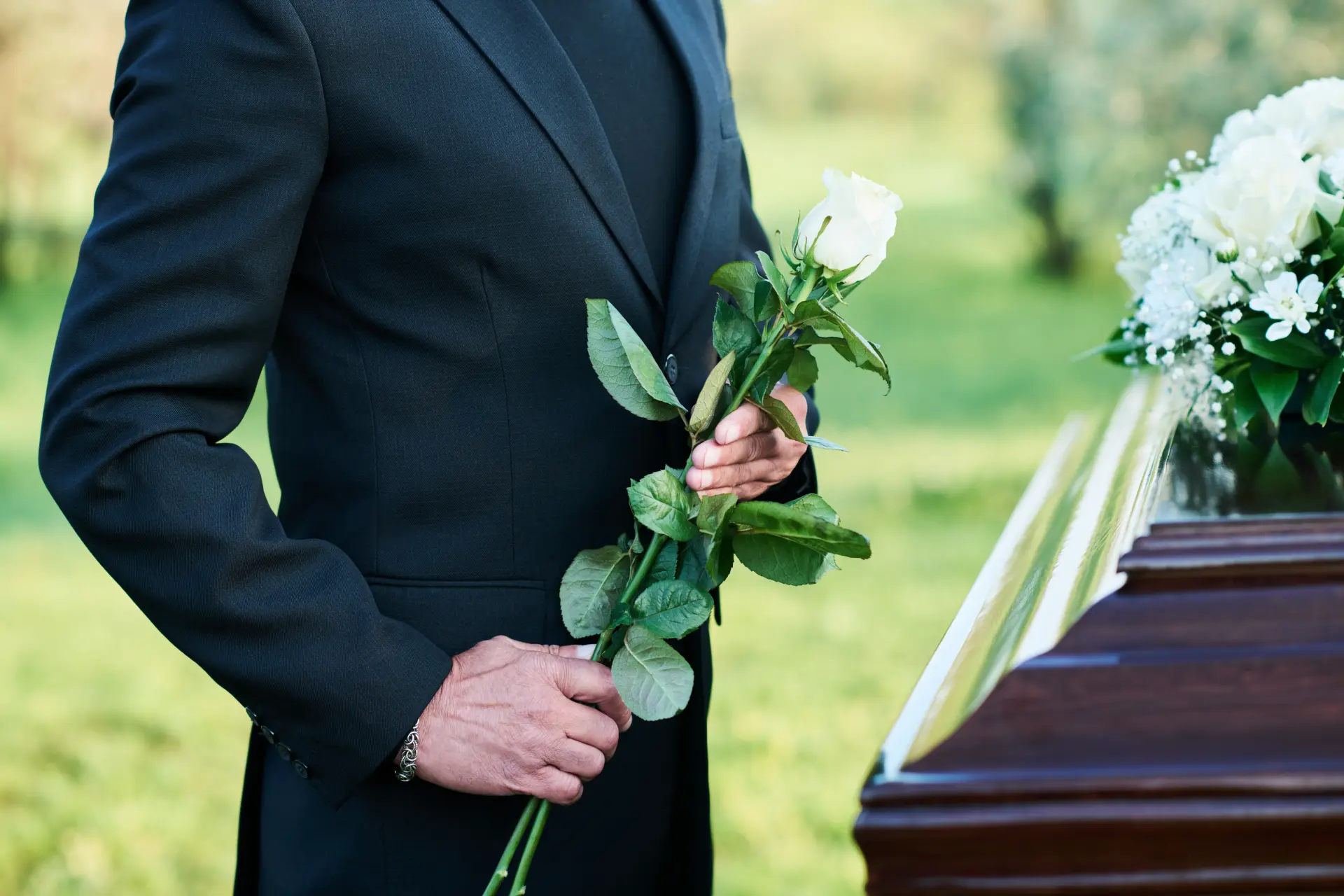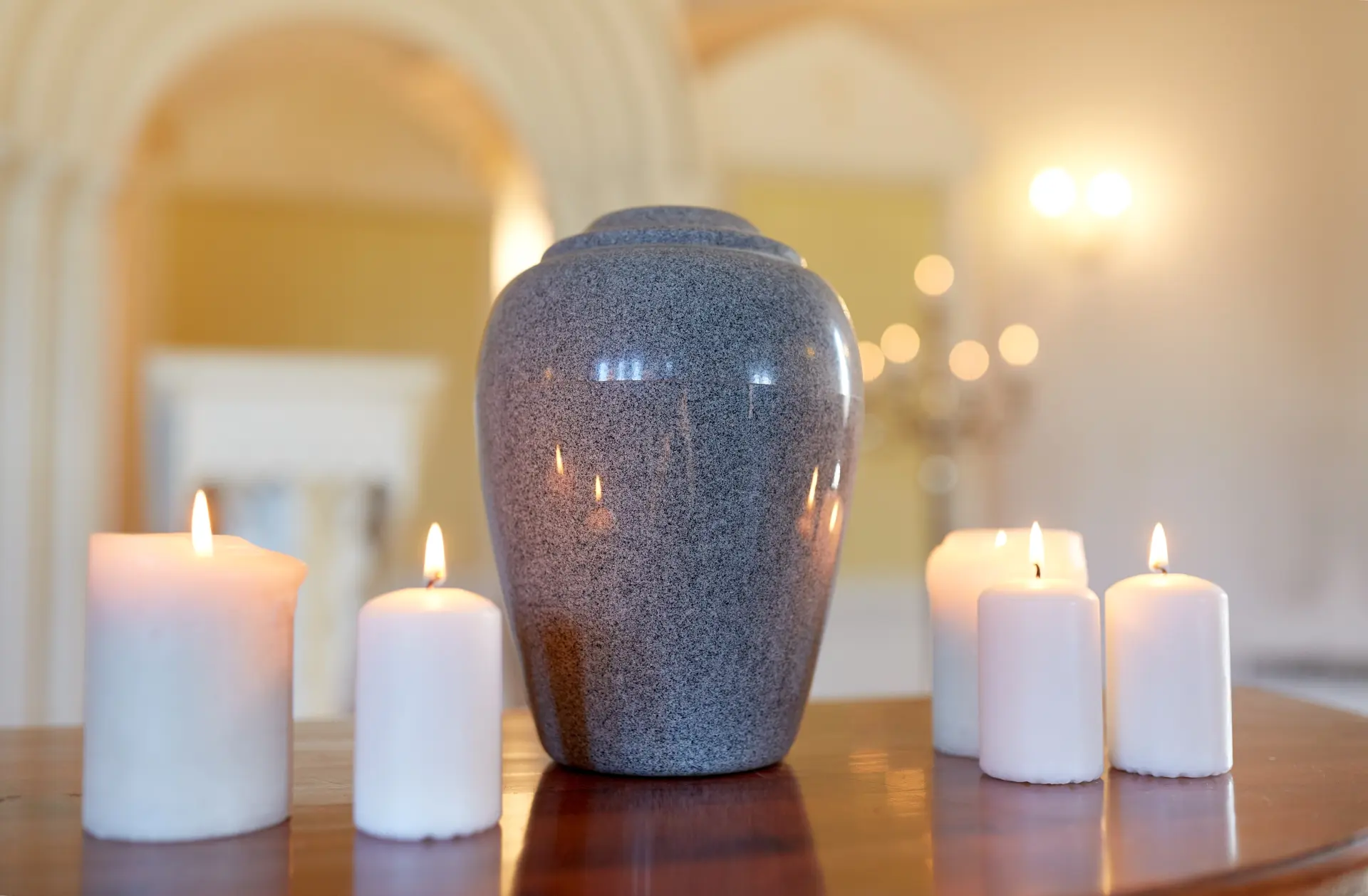We guide you through the steps to take when organising a funeral. This guide covers what to do when someone dies, how to choose a funeral director, arranging the funeral service, deciding between burial or cremation, creating an order of service, planning a wake, organising transportation, and ways to honour the person who died. It’s written to help family members and friends find reliable information at a difficult time, and to make sure the day reflects the wishes and the life of your loved one.
First Steps When Someone Dies
When someone dies, it helps to start with a calm, practical checklist. Contact the GP or the relevant authority to verify the death and obtain the medical certificate. In England and Wales, you usually register the death within five days (different rules can apply in other parts of the UK). If the person died in a hospital or care home, staff will explain what happens next and how the body will be respectfully cared for while you arrange the next steps.
If there is a pre-paid funeral plan or clear notes about wishes (for example, music, readings, preferred venue, crematorium or cemetery, or the type of coffin), gather these details early. This information helps you arrange a funeral that feels right and reduces stress on families and loved ones.

Enlist the Help of a Funeral Director
A trusted funeral director is often the easiest way to coordinate all the moving parts of arranging a funeral. Compassionate funeral directors can provide clear advice, outline options, handle paperwork, and guide you through legal and practical arrangements. They’ll help you choose a type of funeral, book the venue, liaise with the crematorium or cemetery, and arrange vehicles, flowers, and bearers for the coffin. When choosing, find a professional who listens to the family and understands the wishes of the person who died. Ask for a written estimate that explains funeral costs so you can compare services and costs before you decide.

Paying for the Funeral and Managing Costs
Funeral costs vary with place, type of service, and personal choices. Talk openly about paying for the funeral so everyone understands the budget. Possible options include:
⦁ A pre-paid funeral plan or funeral plans held by the person.
⦁ Pay-outs from life insurance or workplace schemes.
⦁ The estate of the deceased (subject to funds).
⦁ Contributions from family members and friends who want to help.
⦁ Government benefits or grants (eligibility varies across England and Wales and the wider UK).
A good guide is to ask your funeral director to break down each cost so you can see where money is going and where you might choose simpler options. There’s no single right way, only what feels appropriate and manageable for your family.

Decide on Burial or Cremation
One of the earliest choices is burial or cremation. Think about religious or cultural wishes, the location where the service will take place, and long-term memorial preferences.
⦁ Burial: Usually involves a graveside service at a cemetery or natural burial ground. Some people value a permanent place to visit.
⦁ Cremation: Often held at a crematorium with the funeral service before or during the committal. Afterward, the ashes can be scattered, interred, or kept in an urn, there are many meaningful choices.
⦁ Eco-friendly options exist for both, including natural shrouds, biodegradable coffins, and woodland sites.
Choose the Place, Date and Time
Next, choose the venue where the funeral service will be held (a place of worship, a crematorium chapel, a community hall, or outdoors where permitted). Consider the likely number of mourners, accessibility needs, parking, and any friends or family travelling from afar. Your funeral director can check availability and help you arrange a date and time that works for key people.
Create the Order of Service
The order of service sets the tone and flow of the event. It might include:
⦁ Readings (poems, religious texts, or personal reflections).
⦁ Music (live or recorded) that reflects the life and personality of the person who died.
⦁ Eulogies from family members and friends.
⦁ Moments of silence to reflect.
⦁ Visual tributes or photo slideshows.
⦁ A printed booklet can help loved ones follow along and becomes a keepsake. Your funeral director can arrange design and printing, or you can create it yourself. Make sure you include clear directions for what will take place and any requests (for example, donations in lieu of flowers).

Select a Coffin, Flowers and Other Personal Touches
Choosing a coffin is a personal choice with many types and options, from traditional wood to cardboard, wicker, or painted designs. Flowers can be simple or elaborate; some families opt for seasonal blooms or arrangements that include favourite colours. Other touches might include a memory table, guest book, or items that tell the story of the person’s life.
Decide Who Will Lead the Service
You can ask a minister of religion, a civil celebrant, or a family member to lead. Talk through the wishes of the person who died and the tone you want, for example, religious, secular, or mixed. A celebrant or minister will help shape the readings, music, and words so the service feels authentic and kind.

Consider Whether There Will Be a Wake or Gathering
Many families hold a gathering after the funeral service, sometimes called a wake, reception, or celebration of life. It can take place at home, a community centre, a pub, or the venue itself.
Think about catering, speeches, slideshows, and space for people to talk and help one another. The atmosphere can be formal or relaxed; the aim is to support loved ones and share memories.
Organise Transportation
Transportation includes moving the body into the care of the funeral director, the cortege to the service, and travel to the crematorium or cemetery. Traditional hearses are common, but there are meaningful alternatives (motorcycle hearse, horse-drawn carriage, or a favourite vehicle). You can also arrange limousines for close family members or friends, or simply travel together in your own cars. Discuss timings and routes so the day runs smoothly.
Invitations, Notices and Communications
Let people know the date, time, and location early so they can plan. You might place a notice online or in local papers, create a private event page, or ask your funeral director to publish details. Include dress code (if any), whether to bring flowers or give to charity, and directions to the venue and wake.

Memorials and What to Do With the Ashes
If choosing cremation, you’ll decide what to do with the ashes: scatter them in a meaningful place, inter them in a garden of remembrance, keep them in an urn at home, or divide them among loved ones.
For burial, you may choose a headstone or marker; check local rules about sizes and timescales before installation. Memorial benches, trees, or charity funds can also be a comforting way to create a lasting tribute.
Special Considerations for a Child’s Funeral
When arranging a funeral for a child, decisions can feel overwhelming. Consider gentle venues, shorter services, soft music, and supportive spaces for siblings and classmates. Many providers offer reduced costs or specific services to support families at this time; a sensitive funeral director can guide you through the choices available.
Cultural, Religious and Green Choices
Funerals can be tailored to your culture, belief system, or environmental priorities. From ritual washings and shroud burials to humanist ceremonies and natural funerals, talk with your funeral director about what’s important so your arrangements are respected and lawful.
Live Streaming and Accessibility
If friends and family can’t attend in person, consider live streaming so loved ones can join from afar. Check seating, venue accessibility, and hearing assistance for mourners who need it. Small practical steps help everyone feel included.

After the Funeral: Practicalities and Support
After the day itself, there are still things to do: obtain copies of the death certificate, speak with banks and utilities, and start any estate processes. Reach out for support, through GPs, counsellors, bereavement groups, faith leaders, and community organisations can all help with grief. Remember that there is no single way to feel; be kind to yourself and to others.
How a Funeral Director Can Help From Start to Finish
From the first call to the final farewell, a good funeral director will arrange logistics, share clear information, outline costs, and coordinate all services so the day runs smoothly. Their role is to support you, honour the wishes of the person who died, and help you plan a meaningful event, whether simple or elaborate, religious or secular, in England and Wales or elsewhere in the UK.
Quick Checklist
⦁ Find and contact a compassionate funeral director; share any wishes or funeral plan documents.
⦁ Confirm burial or cremation and your preferred venue (crematorium, church, hall, outdoors where permitted).
⦁ Choose the date and time; check who needs to be there and what will take place.
⦁ Decide on coffin, flowers, music, and readings; plan who will speak.
⦁ Consider paying for the funeral: budget, funeral costs, life insurance, and any benefits that may help.
⦁ Arrange transport, pallbearers, and seating for close family.
⦁ Prepare the order of service and any memorial items.
⦁ Share clear details with loved ones about the service, location, donations, and wake.
⦁ Afterward, decide on ashes or headstone, send thanks, and seek support for grief.
Organising A Funeral
There’s no perfect script for arranging a funeral, only choices that feel right for your family and the person you’re honouring. With kind guidance, clear information, and a focus on the wishes of your loved ones, you can arrange a funeral that offers comfort, dignity and space to remember.
We have a large selection of carriages available, all of which are drawn by our team of beautiful horses and driven by our fully-qualified coachmen. If you would like more information or to discuss your event further, please get in touch.

